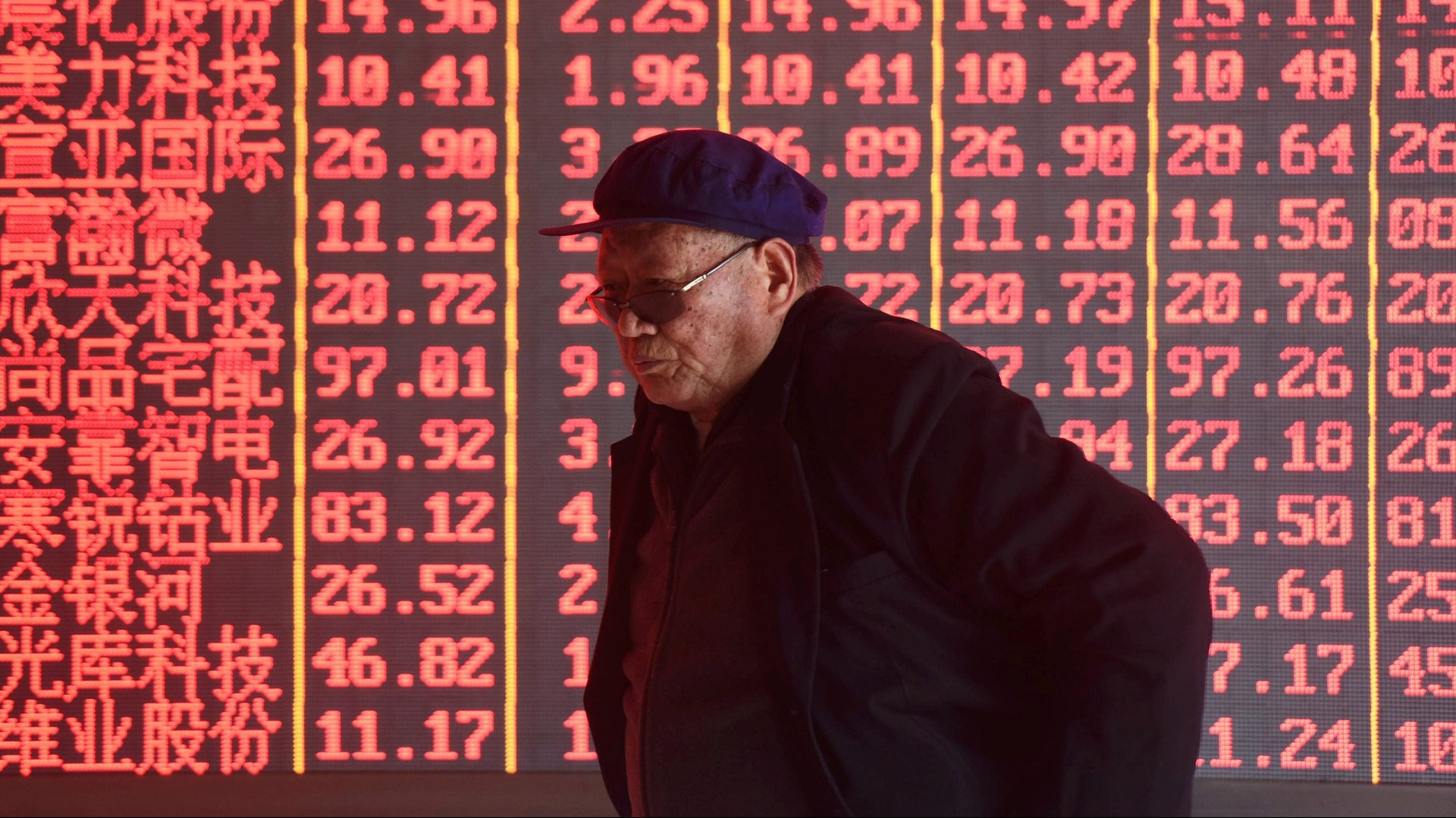Rumors of more regulatory crackdowns sparked a selloff of China’s tech giants
After enduring the government’s regulatory storm that began in late 2020, companies ranging from e-commerce giant Alibaba to gaming mogul Tencent to ride-hailing giant Didi have largely kept a low profile, apart from pledging billions of dollars to Beijing’s initiatives such as “common prosperity” to show their loyalty. But investors, fearing the brutal scrutiny isn’t over yet, are making major moves based on rumors of where Chinese regulatory scrutiny is headed next.


After enduring the government’s regulatory storm that began in late 2020, companies ranging from e-commerce giant Alibaba to gaming mogul Tencent to ride-hailing giant Didi have largely kept a low profile, apart from pledging billions of dollars to Beijing’s initiatives such as “common prosperity” to show their loyalty. But investors, fearing the brutal scrutiny isn’t over yet, are making major moves based on rumors of where Chinese regulatory scrutiny is headed next.
On Monday (Feb. 21), Tencent’s public relations head Zhang Jun disputed a post on the Chinese finance forum Xueqiu that claimed the company would see a major regulatory crackdown soon. Zhang said on his WeChat account that he wonders whether (link in Chinese) the rumor emerged due to the “feeling of emptiness after the Winter Olympics,” and joked that the user, whose account has now been suspended, should come and ask him directly next time so he could provide more accurate information, according to Chinese media. Despite Zhang’s clarification, the company’s shares closed down around 5% in Hong Kong that day, and stayed largely flat yesterday (Feb. 22) as markets took note of the escalating situation between Russia and Ukraine.
Tencent declined to comment.
While big companies like Tencent often encounter unsubstantiated claims about their business or regulatory context, the panicky market response to such speculation is a sign of investors’ heightened sensitivity to any hint of Beijing’s possible scrutiny. Last year, official speeches referencing particular industries, or state media articles, preceded major crackdowns on gaming and online tutoring.
Shares of video streaming and gaming company Bilibili were down 11% this week as of Tuesday’s close in the wake of a separate rumor saying China had stopped issuing gaming licenses. After the spread of the rumor, Chinese authorities told Sina Tech that they are still accepting applications for gaming licenses.
E-commerce giant Alibaba, which has been at the center of China’s regulatory storm against big tech, hasn’t been exempted from this wave of panic. The company’s Hong Kong-listed shares dropped for two consecutive sessions this week amid reports that China has ordered state-owned firms and banks to check their financial exposure and other links to the company’s fintech arm Ant Group, whose mega listing was halted by Beijing in November 2020.
In March last year, the company posted its first quarterly loss since it went public in 2014, mainly due to a $2.8 billion antitrust fine levied by authorities. Its quarterly earnings report on Thursday (Feb. 24) could add to its woes, with Bloomberg reporting the company could see a 60% drop in quarterly profit.
On Friday, China also ordered food delivery platforms to cut their fees for restaurants as part of the government’s plan to help the struggling services sector. While this move doesn’t appear to be targeted at Meituan, which dominated the sector, the Hong Kong-listed company still saw a 15% plunge in its shares that day.
The barrage of negative rumors and reports has rekindled investors’ fears that the painful losses caused by Beijing’s crackdown on the tech sector in the past months will deepen, say analysts. Since Beijing canceled Ant’s planned listing, Chinese tech companies have lost around $1 trillion in market value. The frantic selloff from Friday to Tuesday wiped out around $110 billion in market value from Tencent, Alibaba, and Meituan alone.
“The biggest factor driving the decline of the new economy shares last year is industry supervision,” said Kenny NG, a securities strategist at Everbright Securities International. “At the beginning of this year, the markets didn’t pay that much attention to the regulatory scrutiny. But after the spread of such information [about the tech firms], investors start to worry again about that aspect.”